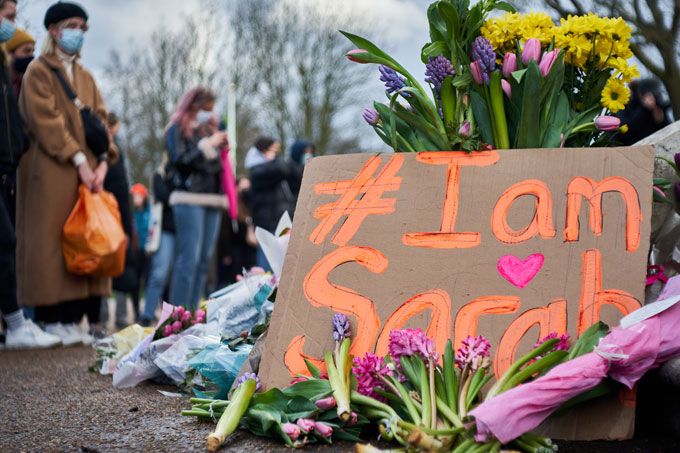Dr Chris Beighton and Zahra Kemiche look at the issue of transparency and trust within organisations.
The appalling crimes committed against Sarah Everard and the subsequent conviction of a police officer for these offences raises serious questions about policing and trust in the UK.
Scotland Yard has already begun to examine its policy in response to the erosion of trust caused by such abuses of power. However, the consequences of this lack of trust are potentially devastating for our society, based as it is on trust in those empowered to enforce them.
In research carried out with colleagues on Police firearms officers, we identified a militaristic, macho culture which has traditionally existed in this area of policing. Our interviewees told us that a “bark and bite” culture of punishment and behaviouristic techniques, inherited from the service’s roots in military culture, did not just work against effective training and professional development, it also undermined attempts to instil the values and practices of respect and diversity. This culture is changing with new generations of officers and, we hope, with the training we do in partnership with police forces. But its shadow is long, even as the force makes real efforts to develop a more diverse culture.
In more recent research, we suggest that wider reflections of this issue can also be seen in examples of racist abuse in higher education. Once again, those entitled to place their trust in organisational culture too often feel let down by it. In recent papers, we have discussed international students’ experiences of racist practices on campus . This research draws directly on the lived experiences of students who often complain of discriminatory behaviour and the feeling that the “space” of HE is, often, not for them.
However, in addition to such feelings of exclusion, our research highlights the possibility that processes put in place to prevent discrimination might actually mask deeper issues of a toxic organisational culture. In particular, our work echoes findings that, in some cases, institutional image takes precedence over student wellbeing. We point out that marketing pressures, risk aversion and an acute sense of the impact of reputational damage on student recruitment can all lead to an organization playing down or hiding issues, complaints and problems. Processes must of course be in place to prevent this, but we show how some organizations can work around these processes, downplaying or even failing to respond to the issues raised.
Our point is that, while changes in process are welcome, they must not be allowed to obscure or undermine genuine concern for what is ethically acceptable. In some cases, we have argued, the very processes which are supposed to prevent abuse are sometimes used to brush it under the carpet. Let’s hope that recent events can help alert organisations to this possibility and, more importantly, the need to engender more transparency and trust through genuine respect for those who put their confidence in us.
Dr Chris Beighton is Senior Lecturer in the Faculty of Arts, Humanities and Education, Zahra Kemiche is a Postgraduate Researcher.
 Expert comment
Expert comment Jeanette Earl
Jeanette Earl 5898
5898


